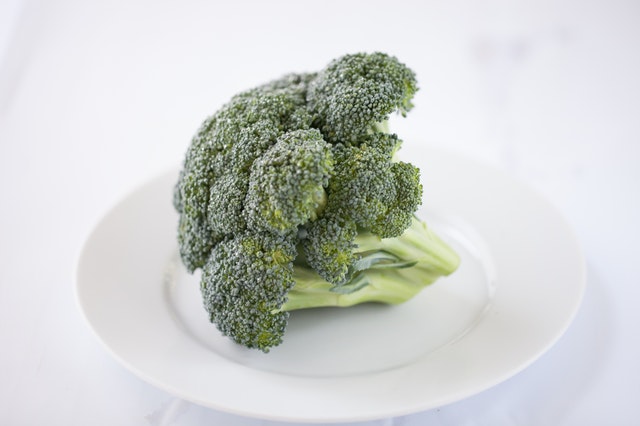There are many different hormones found in the body, all with different roles and functions. Leptin and Ghrelin are the main hormones involved in controlling your appetite and impacting your hunger levels. Leptin is considered an appetite suppressant, while ghrelin is considered an appetite stimulant. It’s the role of these two hormones to communicate with your brain, letting you know when it’s time to eat to fuel your body or to stop eating when your body is full.
Read on to learn more about leptin and ghrelin and how you can support healthy hormone function with simple diet and lifestyle tips!
Leptin
Leptin means “thin” in Greek. The role of leptin is to communicate with the hypothalamus, the portion of your brain that controls your appetite and food intake. Lectin is released by your fat cells when your body has had enough fuel, letting it know to stop eating and start burning fat to create energy!
Because leptin is produced by fat cells, the amount of leptin released is directly related to the amount of body fat a person has. Those with more body fat will have more leptin circulating in their blood than a person with less body fat. Leptin levels increase if an individual increases their body fat over time and decreases if an individual decrease their body fat over a period of time.
Unfortunately, our hormones, leptin included, are not always in perfect balance. Diet, sleep, lifestyle, and health conditions can all throw your hunger hormones out of whack.
Tips for Healthy Leptin Levels
- Consume healthy fats such as olive oil, avocado, nuts, chia seeds, or fatty fish. Snacking on nuts and seeds throughout the day and switching from butter to olive oil when cooking are easy ways to incorporate more healthy fats into your diet.
- Try to limit your consumption of inflammatory foods such as sugar, artificial trans fat, vegetable and seed oils, refined carbohydrates, alcohol, and processed meats. Inflammatory foods can easily hide in processed snacks and fast food. Planning your meals ahead of time can ensure you have healthy meals ready to go, so you are not tempted by unhealthy food options. If meal planning feels overwhelming, but you still want to enjoy fresh, healthy meals, shop our customizable meal plans and get healthy meals delivered right to your door!

- Eat more anti-inflammatory foods such as turmeric, berries, broccoli, green tea, avocados, and mushrooms. Sipping green tea or adding turmeric to your cooking can help lower inflammation, so your body can function as it should.
- Exercising regularly can help improve leptin sensitivity, as well as improve your overall wellbeing. Exercise will look different for everyone, but even 20 minutes of yoga or a walk around the block can help keep your hormones healthy. You don’t have to visit a gym every day to exercise. Focus on moving your body in a way that motivates you and brings you joy.
- Manage stress. Chronic stress can cause inflammation in the body, gut imbalances, and hormone imbalance. We all encounter stress from time to time. While stress is inevitable, there are things you can do to reduce stress in your day-to-day. Practicing morning yoga or stretching, meditating, journaling, going for a walk, or calling a friend can all help boost your mood and lower stress, leaving you feeling your best! Find the things in life that help you relax and do them often!
- Get adequate sleep. Insufficient sleep leads to a drop in leptin levels and increased appetite. Have you ever been up late and all of a sudden needed a midnight snack? Aim to get 7-9 hours of restful sleep each night. This may seem like a struggle if you’re always on the go, but 7-9 hours is ideal for giving your body the rest it needs. If you struggle to fall asleep or stay asleep, try to create a calming environment with low lights and a clean space. Limiting screen time before bed can help keep your circadian rhythms in check, letting your body know when it’s time to sleep. Instead of scrolling late at night, read a book before bed to help you unwind. Work to create a nighttime routine to help you relax and prepare your body for sleep.
Ghrelin
Ghrelin is a hormone that increases appetite. It is produced and released mainly by your stomach but can also be released in small amounts by the small intestine, pancreas, and brain. Once released, ghrelin travels throughout your blood to signal to your hypothalamus that your body needs fuel and to conserve energy. Ghrelin levels are highest just before eating, lowest about an hour after you have eaten, and remain low for about three hours.
Just like with leptin, your ghrelin levels can get thrown off when your body isn’t functioning optimally.
Tips for healthy ghrelin levels
- Try to limit your consumption of sugar and high-fructose corn syrup, which can impair ghrelin’s decline after eating. If you crave a sweet treat after a meal, grab a piece of dark chocolate instead of a sugary snack.
- Once again, get adequate sleep! Sleep is crucial for almost every function in the body. If you are someone who gets less than 7-9 hours of sleep per night, you may be surprised by how much your health can improve from more rest.
- Eat balanced meals. Ensuring your body has the fuel it needs throughout the day will help keep your hormones and blood sugar balanced. At Local Foodz, we offer a meal plan specifically geared towards balanced meals. Each meal is packed with a variety of proteins, vegetables, and carbs to keep you energized throughout the day!

- Stay hydrated! Adequate water intake can improve your health in many ways. It also helps to fill your stomach, turning down the ghrelin signal. Start your day with a glass of water before your coffee and aim to drink half your body weight in ounces of water each day!
- Manage stress. Just like with leptin, it’s important to manage stress for healthy ghrelin levels. Chronic stress can lead to overeating, poor food choices, increased alcohol consumption, and inadequate sleep. Elevations in ghrelin during stress may be our body’s way of trying to cope. When you’re feeling overwhelmed, do you immediately reach for your favorite comfort food?
If you feel your hunger hormones aren’t working as they should, try these diet and lifestyle tips to get you back on track!
Drinking water, getting adequate sleep, and ensuring your body is fueled with the nourishment it needs are foundational in controlling your hunger hormones and keeping your body functioning as it should.





